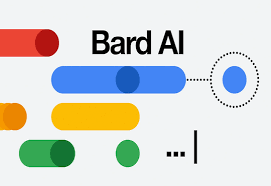Bard, Google’s conversational artificial intelligence service, has been expanded to 40 additional languages, including Swahili, which is the first African language to be included, as well as 59 new countries and territories.
According to Google’s announcement yesterday, the expansion will include new capabilities that will enable users to better personalize their experience, increase their creative output, and get more work done.
As a result of the expansion, the Bard skill is now accessible in the majority of regions throughout the globe and in the languages that are spoken the most frequently, such as Swahili, Chinese, German, Spanish, Arabic, and Hindi. Users are now able to access Bard in the language of their choice, and text-to-speech has been enabled in eight different languages.
Read also: Kenya’s International Baccalaureate uses AI and ChatGPT
Remarks from Google officials
Dorothy Ooko, who is in charge of Communications and Public Affairs for SSA at Google, made the following statement:
“We’re excited that this is Bard’s largest expansion to date – we see its global availability as a great democratizer of knowledge.
“That’s why we created Bard: to help you explore that curiosity, augment your imagination and ultimately get your ideas off the ground — not just by answering your questions, but by helping you build on them.”
As part of the expansion, additional upgrades have been included to make the Bard experience more engaging and user-friendly. These updates were added as part of the expansion.
The ‘Listen to Responses’ option now adds an audio layer to Bard’s responses, which makes it especially helpful for acquiring precise pronunciation or understanding a script. All it takes is a simple click on the sound button to activate the feature.
The search engine platform noted that users may now alter Bard’s responses by changing the tone and style of its responses to one of five different possibilities.
These options include simple, long, short, professional, or casual, enabling a tailored interaction to match individual requirements. Even while this functionality is currently only available in the English language, there are already plans in place to translate it into other languages, making it more accessible to users all around the world
Google shares more updates
According to Google, four new features were also implemented in order to assist users in doing more in their daily lives. It was stated that users can now bookmark and label their discussions with Bard, making it simpler to return to talks in the future that contain essential information or ideas.
Users now have the ability to export Python code to Replit in addition to Google Colab due to a new feature called “export code to more places.” This makes it much simpler for users to either share their code with other people or utilize it in different projects.
Users will also have the ability to share their comments with their peers through the use of shareable links, making it simpler for users to work together on projects or gain feedback on ideas. The functionality that enables users to post photographs to Bard along with prompts, has also been made available.
Bard’s objective
The objective of Bard is to integrate the vastness of the world’s knowledge with the strength, intelligence, and creativity of massive language models developed by Google. When generating answers, it pulls information from throughout the internet.
Due to the nature of Bard as an experimental piece of technology, it may, on occasion, respond to user prompts with incorrect information. If a response from Bard is found to be wrong or unsafe, if one encounters a problem, or if one simply wishes to submit feedback, there is a simple method by which this can be done.




